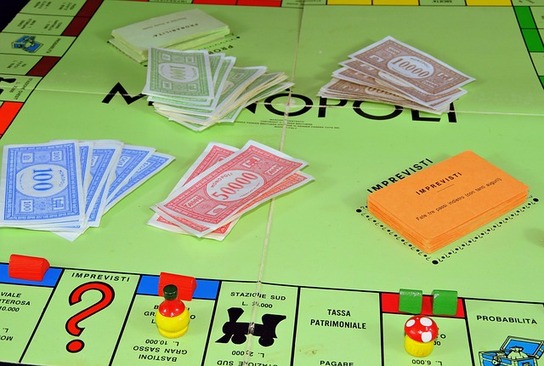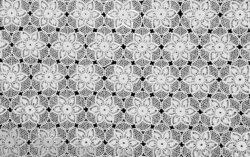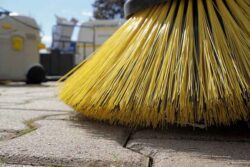
The world of board games and puzzles is an enthralling place where strategy, creativity, and camaraderie come together to create unforgettable moments for friends and family. If your shelves are filled with treasures like Monopoly, Scrabble, or a plethora of intricate puzzles, you are about to go on a maintenance mastery journey. In this Comprehensive Guide on How to Clean and Organise Your Home’s Board Games and Puzzles, we delve into the art of preserving these beloved pastimes, guaranteeing that every game night is a flawless combination of fun and relaxation.
A classic family favorite, board games, and puzzles can be damaged by wear and tear, disarray, and the odd spilled snack. Fortunately, we will go over how to keep your games and puzzles in excellent condition in this extensive guide. From methods for cleaning various materials to tips for organizing your game nights, let us take on the task of preserving and improving these cherished home entertainments.
Here is our related post on A Comprehensive Guide on How to Clean Your Sports Equipment for Hygiene and Longevity which you will not want to miss.
Pre-Cleaning Steps for Your Collection
Assessing the Materials
Before diving into cleaning and organizing, understand the materials of your board games and puzzles. Components may include cardboard, plastic, wood, metal, or a combination. Knowing the materials guides your cleaning approach to ensure longevity without damage.
Sorting by Type and Size
Sort your collection by type and size. Group board games together and puzzles separately. Within each category, organize by size. This sorting foundation makes it easier to implement an efficient cleaning and organizing strategy.
Checking for Missing Pieces
Before starting the cleaning process, check each game and puzzle for missing pieces. A missing component can hinder gameplay and reduce the enjoyment. If you discover any missing parts, consider reaching out to the manufacturer or exploring replacement options.
Inspecting for Damage
Inspect each game and puzzle for damage. Look for torn boxes, creased game boards, or warped puzzle pieces. Identifying damage early allows you to address it promptly and prevent further deterioration.
Creating an Inventory
Create an inventory of your board games and puzzles. Include the title, number of pieces, and any specific details about the game. This inventory serves as a quick reference for checking completeness and aids in organizing your collection.
See also our post on How to Clean Your Home Gym Equipment: Hygiene and Performance
Cleaning Strategies
Dusting and Dry Cleaning
For games and puzzles with cardboard components, start with dusting. Use a soft brush or microfiber cloth to gently remove dust from game boards and puzzle boxes. Dry cleaning is an excellent initial step for keeping components pristine.
Wiping Plastic and Metal Components
For plastic and metal components, use a damp cloth or sponge to wipe surfaces. Avoid abrasive cleaners that can scratch plastic. Dry thoroughly to prevent water damage. This method is effective for game pieces, tokens, and other non-porous materials.
Cleaning Wooden Components
Wooden game boards and pieces require gentle care. Use a slightly damp cloth to wipe wooden surfaces, ensuring not to oversaturate. For stubborn stains, a mixture of mild soap and water can be applied. Dry promptly to prevent wood swelling.
Addressing Sticky Residue
Sticky residue on game boxes or pieces can be tackled with a gentle adhesive remover. Apply a small amount to a cloth and carefully rub the affected area. Wipe away any residue with a clean cloth. Always test on a small, inconspicuous area first.
Dealing with Cardboard Stains
Cardboard components may encounter stains. A soft eraser or art gum is effective in gently rubbing away stains on cardboard. Avoid using excessive force to prevent damage to the printed surface.
See also our post on How to Clean and Sanitize Gym Bags and Workout Gear which you will not want to miss.
Organizing Your Collection
Investing in Storage Solutions
Consider investing in storage solutions that cater to different game sizes. Shelving units with adjustable shelves accommodate various box heights. Transparent containers for puzzles with missing boxes make pieces easily visible.
Using Ziplock Bags for Pieces
For games with multiple small pieces, use ziplock bags for organization. Label each bag with the game title and contents. This prevents pieces from getting lost and simplifies setup before game night.
Creating Dedicated Spaces
Designate dedicated spaces for board games and puzzles. This could be a shelf, cabinet, or entertainment center. Organizing by type and size within these spaces ensures easy access and maintains a tidy appearance.
Implementing a Check-Out System
If you have a sizable collection and share it with friends or family, consider implementing a check-out system. Keep a log of borrowed games and set clear expectations for returning them. This ensures the safekeeping of your collection.
Organizing Puzzle Pieces
Organizing puzzle pieces can be a challenge. Use stackable containers or puzzle trays to keep pieces sorted. If you prefer working on puzzles over time, invest in a puzzle mat that allows you to roll up and store an in-progress puzzle.
See also our post on How to Clean and Sanitize Children’s Play Areas: A Guide to Safety and Fun
Tips for Maintaining Gameplay
Encouraging Gentle Handling
Promote gentle handling of game components. Educate players, especially young ones, on the importance of careful shuffling, picking up cards, and placing components back in the box without force.
Establishing a Game Night Routine
Establish a game night routine that includes a quick check for missing pieces before starting. This routine becomes a habit and ensures that every game begins with a complete set.
Educating Players on Game Rules
Educate players on the rules of each game. Clear understanding reduces the likelihood of accidental damage caused by incorrect handling or misplaced components during gameplay.
Limiting Food and Drinks
While game nights are often accompanied by snacks, consider limiting food and drinks near the gaming area. This reduces the risk of spills and prevents components from becoming sticky or stained.
Rotating Game Selection
Rotate the selection of games used during game nights. This prevents excessive wear on specific games and ensures that the entire collection gets equal attention. It also adds variety to your gaming experience.
See also our post on The 10 Benefits of Green Cleaning for Workplace Wellness which you will not want to miss.
Addressing Specific Challenges
Repairing Torn Game Boxes
If you encounter torn game boxes, repair them using clear tape or specialized box repair tape. Ensure that the tape adheres securely but doesn’t damage the box further.
Straightening Warped Game Boards
Warped game boards can be gently straightened. Place the warped board between two heavy books for a few days. This helps the board regain its original shape.
Reinforcing Puzzle Pieces
For puzzle pieces that tend to separate, reinforce them using clear glue along the seams. Be cautious with the amount of glue to prevent excess from seeping onto the puzzle image.
Handling Puzzle Edges
If puzzle edges are damaged or frayed, carefully trim them with small scissors. Take care not to cut into the puzzle image, and ensure a clean, straight edge.
Dealing with Fading Game Components
Fading can occur over time, especially with exposure to sunlight. Store games in a cool, dark place to prevent fading. If components are severely faded, consider reaching out to the manufacturer for replacement parts.
Click here to have a glance at our post on Professional Cleaning of Commercial Play Structures: A Comprehensive Guide.
Conclusion
Maintaining and organizing your home’s board games and puzzles is an investment in both entertainment and longevity. By understanding the unique needs of different materials, implementing effective cleaning strategies, and adopting organizational techniques, you ensure that every game night is a seamless and enjoyable experience. Embrace the joy of board games and puzzles with a well-maintained and organized collection, and let the fun continue for years to come.







